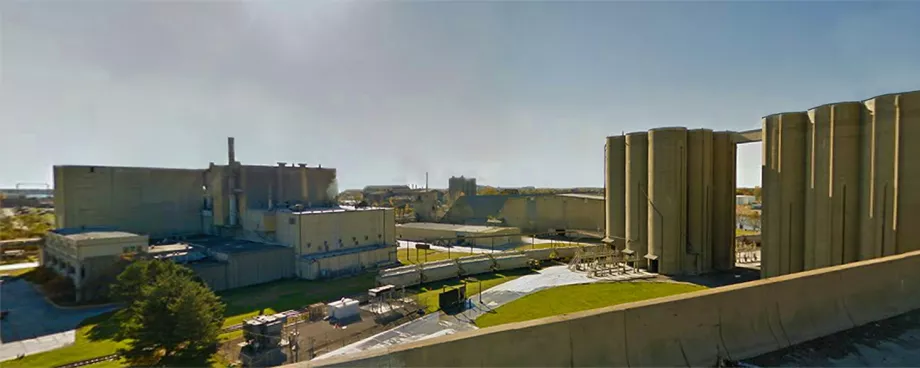The St Marys Cement plant -- located along the Rogue River in Detroit -- produces 200 to 250 tons per hour (181 to 226 mtph) of Portland cement. Front loaders transfer dusty 1.5 to 2 inch (38 to 50 mm) minus limestone and gypsum aggregate onto the 30-inch-wide #14 belt. Inclined approximately 20 degrees at the point of loading, the belt conveys cargo for 20 feet up to ground level, moves horizontally for 200 feet (61 m), then begins another long 30-degree incline into the top of a 50-foot-tall tower. The conveyor discharge zone, with only enough room to fit one primary cleaning blade, offloads into a chute.Roughly 30,000 tons (27,215 metric tons) of raw material and clinker arrives weekly by truck and ship. The aggregate is offloaded to an outdoor storage area, where the material tends to get saturated when the Michigan weather turns wet and cold. This causes large amounts of mud and sludge.Operators found that polyurethane cleaner blades were unable to completely clean the belt. “The fines and mud take on the tacky consistency of toothpaste, causing it to cling to the belt along with smaller pieces of aggregate and shale,” said David Accomando, Plant Maintenance Supervisor for St Marys Detroit. “This led to a lot of carryback spilled along the return path, where it fouled idlers and built up so high under the loading zone that it would encapsulate the tail pulley.”
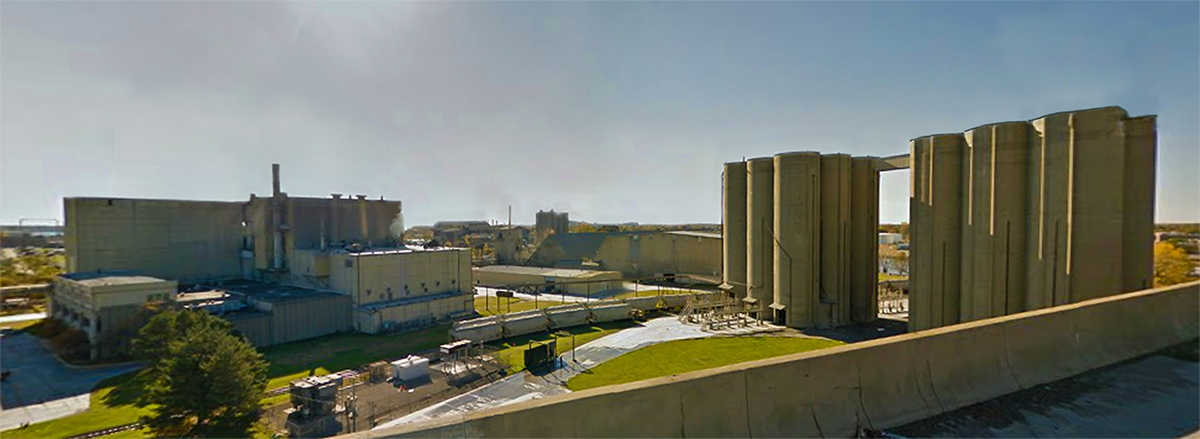
Maintenance technicians periodically had to stop other essential duties and shut down the system to replace frozen return idlers and prevent further damage. After digging out the tail pulley, workers needed to clean the face, which often had abrasive buildup that could reduce the belt life. The cleaner required regular tensioning and periodically needed to be removed, re-cut and shaped. In addition, 2 to 3 workers spent up to 8 hours twice per month to clean the loading zone and the belt path using shovels and a vacuum truck.
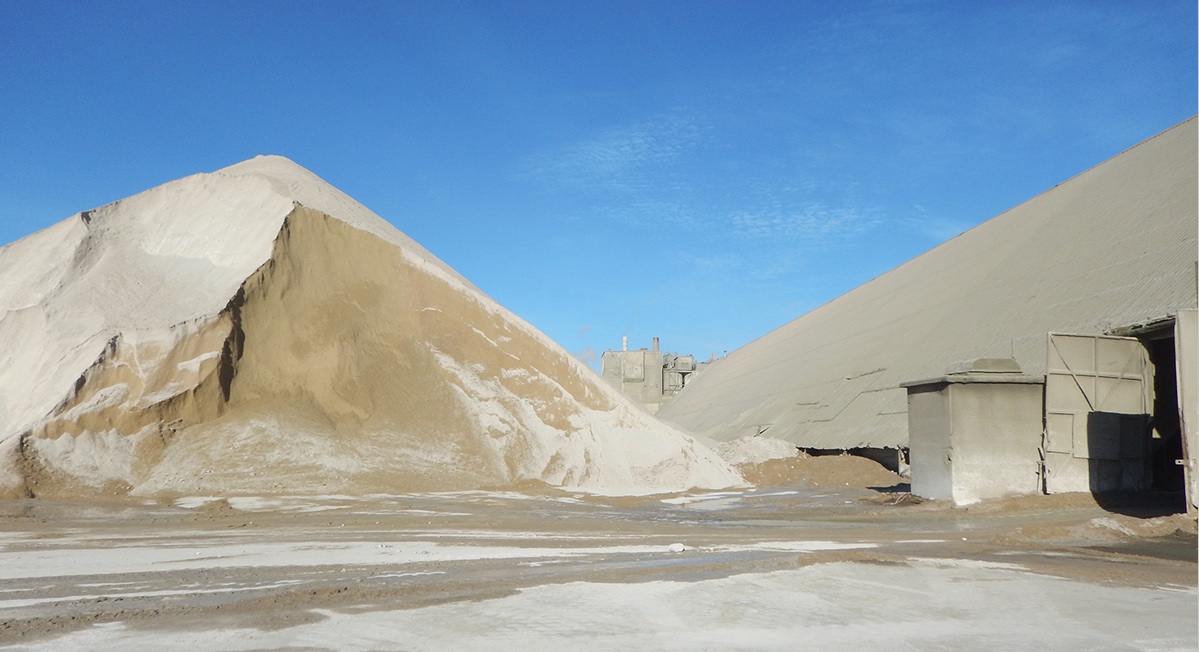
Martin® CleanScrape® InstallationMartin technicians concluded that the #14 conveyor was an excellent candidate for the Martin® CleanScrape® Primary Cleaner. It requires considerably less space than other primary cleaners, can be effective enough to eliminate the need for a secondary blade, and is proven to deliver as much as 4x the lifespan of competing urethane blades.
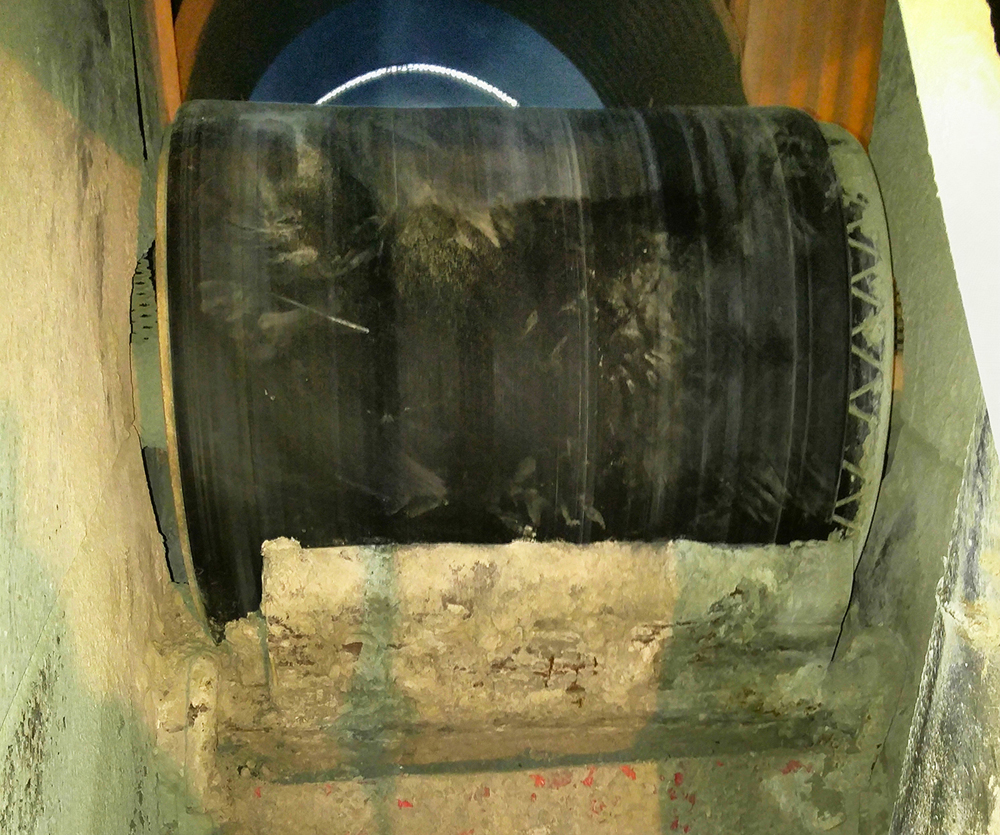
The flexible cleaner is installed diagonally across the discharge pulley, forming a three-dimensional curve beneath the discharge area that conforms to the pulley’s shape. The unique design incorporates a matrix of tungsten carbide teeth and is tensioned lightly against the belt to prevent damage to the belt or splices. Despite extremely low contact pressure, it has been shown to remove as much as 95% of potential carryback material.Designed for belt speeds up to 780 fpm (4 m/s) for mechanically spliced belts, pulley diameters up to 50 inches (1270 mm), and belt widths up to 96 inches (2438 mm), the CleanScrape is engineered to perform under the punishing conditions of cement applications and other bulk handling industries. The patented design requires very little maintenance. The tensioners are tightened during initial installation, and typically no further adjustment is required over the life of the blade.
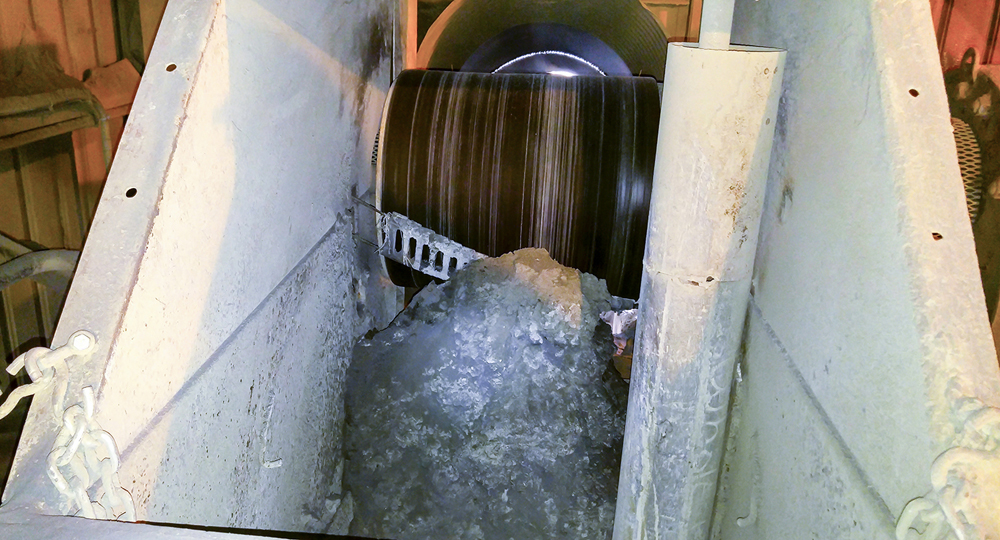
Results As cargo with a moisture level of 10-15 percent was loaded onto the belt, dust and fines built up into a thick paste as usual, but ended up being fully removed from the belt. “For this application, we were very surprised by how well it worked,” Accomando said. “The return side of the belt might have a little bit of wet material still on it, but nothing even remotely close to what it used to be.”After a full year of punishing 24/7 operation with little downtime through conditions that included cold slush and mud, as well as hot and dry dusty material, the original CleanScrape cleaner continues to perform consistently well, without a single adjustment. The cleaning schedule has been altered from a 2 to 3 person crew over a full shift twice per month, to just a single worker hosing down critical areas for an hour or so, once per month.“We haven’t touched the blade or tensioner once since they were installed a year ago,” Accomando pointed out. “That’s one of the great things about working with Martin, not only is their equipment top notch, but what stands out most to me is the service. They follow up regularly to make sure that we’re happy with the product, and we are.”Martin Engineering is a global innovator in the bulk material handling industry, developing new solutions to common problems and participating in industry organizations to improve safety and productivity. The company’s series of Foundations books is an internationally-recognized resource for safety, maintenance and operations training -- with an estimated 10,000 copies in circulation around the world -- and employees take an active part in ASME, SME, VDI, CMA and CEMA. The firm also played a pivotal role in writing and producing the 7th edition of the CEMA reference book, Belt Conveyors for Bulk Materials. Martin Engineering products, sales, service and training are available from factory-owned business units in Australia, Brazil, China, France, Germany, India, Indonesia, Italy, Mexico, Peru, Russia, Spain, South Africa, Turkey and the UK____________© 2017 Martin Engineering Company. All rights reserved. Martin Engineering products are protected by U.S. Patents, corresponding foreign patents and patents pending. Additional information can be obtained at www.martin-eng.com/trademarks.
■


